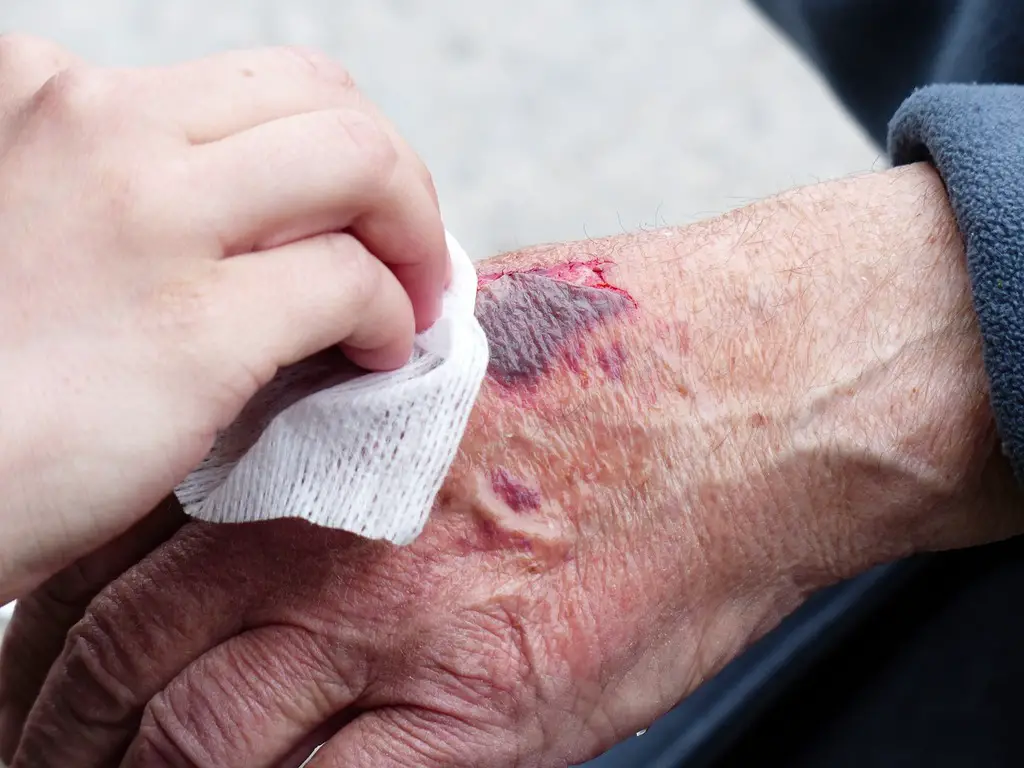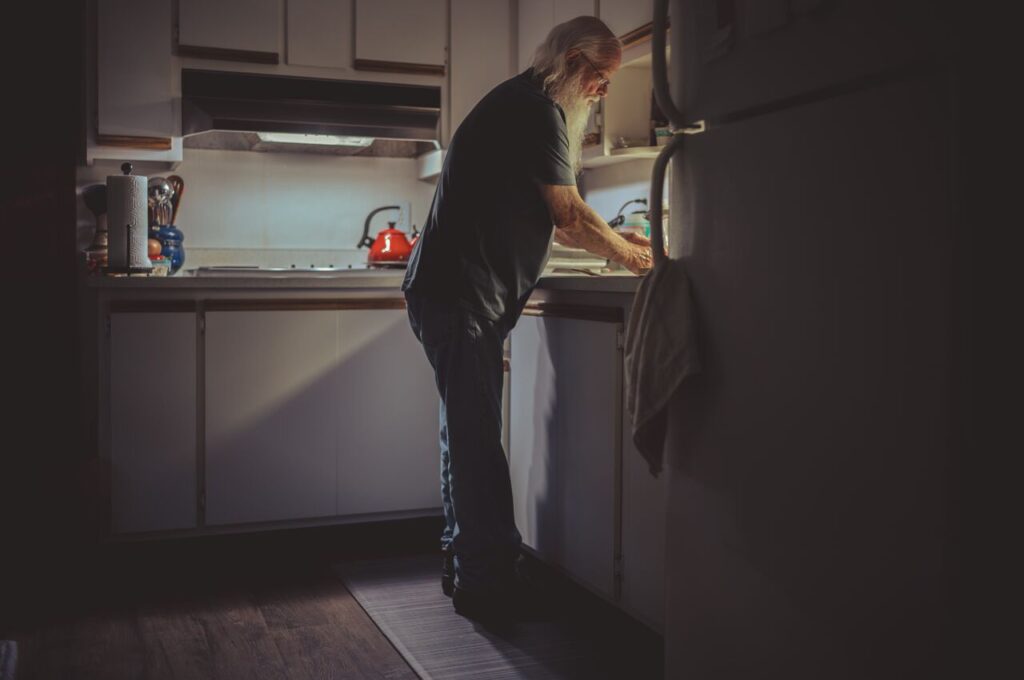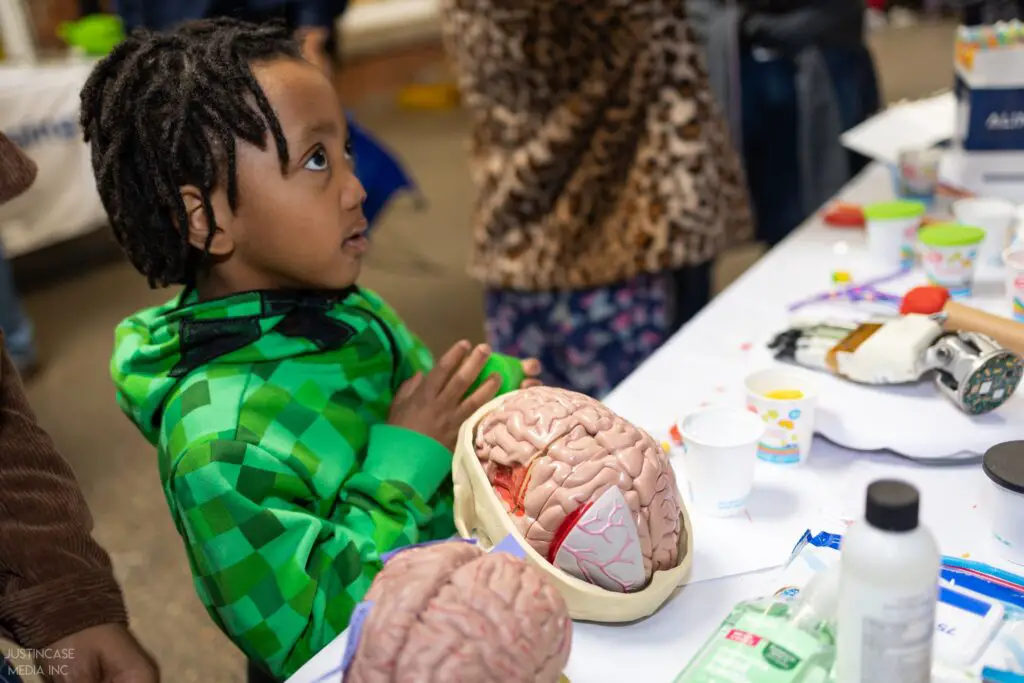You ever wake up one minute before your alarm like some kind of psychic wizard… or find yourself always needing a snack at exactly 3PM like clockwork? That’s not a quirky coincidence—it’s your body being freakishly good at telling time, even without a single glance at your iPhone. Yep, we’re all basically walking grandfather clocks with organs. Your body runs on an internal rhythm, and when that rhythm gets funky (thanks, night shifts, jet lag, or binge-watching until 2AM), it can quietly wreak havoc on everything from your mood to your metabolism.
So if you’ve ever wondered why your energy crashes, your skin freaks out, or your stomach throws a tantrum for no reason, the answer might just be: your body’s ticking off schedule. Here are 13 sneaky ways your internal clock is calling the shots—and occasionally messing with your health like a shady little time gremlin.
1. Late-Night Snacking? Your Metabolism Disagrees

Craving snacks at midnight? Your metabolism might not be on board. Circadian rhythms influence metabolic processes, and eating late at night can disrupt these rhythms, leading to weight gain and other metabolic issues. PubMed Central highlights how our bodies are naturally primed to digest food during the day, not when Netflix asks if we’re still watching.
Your body’s ability to process glucose and lipids fluctuates throughout the day, peaking during daylight hours. Late-night eating can throw off this balance, increasing the risk of obesity and type 2 diabetes. It’s not just about calories—it’s about timing. So next time you’re face-deep in a bag of chips at 1AM, know your pancreas is sighing in disappointment.
2. Wounds Taking Forever to Heal? Your Body Clock Might Be Off

Noticing that your cuts and bruises are sticking around longer than usual? Disruptions in your circadian rhythm can delay wound healing. As Nature points out, skin cells actually regenerate faster during the day, when your body expects activity and possible injury.
Your body’s internal clock regulates various physiological processes, including skin cell regeneration and inflammation response. When this rhythm is out of sync, these processes can slow down, making recovery from injuries take longer. That means pulling all-nighters or jet lag could do more than make you cranky—they might literally slow your skin’s ability to bounce back. Bonus tip: timing surgeries and treatments to align with your circadian rhythm is a thing now. Some docs even believe it could improve outcomes and reduce complications.
3. Feeling Down? Your Mood Swings Could Be Clock-Related

Experiencing mood swings or feeling unusually down? Disruptions in your circadian rhythm can affect your mental health, contributing to mood disorders like depression and anxiety. A study published on PubMed found a strong connection between circadian rhythm misalignment and increased risk for mood disorders.
Your internal clock regulates hormone production, including cortisol and melatonin, which influence mood and stress levels. When your circadian rhythm is off, these hormones can become imbalanced, leading to emotional disturbances. That’s why shift workers and frequent flyers often report higher rates of depression and irritability. Your body isn’t just tired—it’s confused, chemically. Getting regular sleep isn’t just for energy; it’s for sanity.
4. Morning Grogginess: Blame Your Light Exposure

Ever wake up feeling like you’ve been hit by a truck, even after a full night’s sleep? Turns out, your morning grogginess might be due to insufficient light exposure before waking. A recent Japanese study found that exposure to natural light 20 minutes before waking up significantly reduces morning fatigue. According to Real Simple, simply opening your blinds or stepping outside for a moment first thing in the morning could shift your entire day.
This light exposure helps regulate your circadian rhythm by signaling your brain’s suprachiasmatic nucleus, which controls sleep-wake cycles. So, if you’re not getting enough light in the morning, your body might not realize it’s time to be alert. Instead of coffee, your biological clock might just need some sunshine. And if you’re relying solely on your phone screen to greet the day, sorry—but blue light doesn’t count the same way natural daylight does.
5. Getting Sick More Often? Your Immune System’s Timing Matters

Catching colds more frequently? Your immune system operates on a circadian schedule, and disruptions can impair its function. According to the Cleveland Clinic, your body actually schedules immune defense like a calendar app—certain times of day are more optimal for fighting invaders.
Immune cells follow daily rhythms, and when your internal clock is misaligned, their efficiency can decrease, making you more susceptible to infections. Think of it like a security team that only works part-time if you mess with your sleep. Night owls who aren’t getting enough rest might find themselves battling more bugs—not just in their browser history. Want fewer sick days? Try honoring your bedtime like it’s a sacred ritual.
6. Your 3PM Slump Isn’t Just About Boredom

So it’s mid-afternoon, your lunch has barely settled, and your energy has nosedived straight into the carpet. No, you’re not lazy—you’re on schedule. Your circadian rhythm naturally dips in alertness during the early-to-mid afternoon, typically around 2 to 4PM. That crash you feel? Totally biological. It’s the body’s way of saying, “Hey, nap time?”—even if you’re stuck pretending to care about spreadsheets. This lull affects everything from concentration to reaction time, which is why car accidents and workplace mistakes tend to spike around this window. It’s not you, it’s your rhythm.
Instead of grabbing another coffee (which will sabotage your sleep later), try a brisk walk, some sunlight, or just five minutes of standing and stretching. These little resets send your body the “we’re still going” memo. If you time your heaviest tasks for morning and lighter stuff post-lunch, you’ll flow better with your body’s actual tempo. And if you find yourself staring blankly at your keyboard at 3:07PM every day—congrats, your internal clock is right on time.
7. Jet Lag Isn’t Just Annoying—It’s a Full-Body Reboot

Jet lag isn’t just about being tired in a different time zone—it’s your entire biological system screaming, “Where are we and why is it light out?” Your circadian rhythm takes cues from light, food, and sleep, so when you throw all three into chaos by crossing time zones, your body flips out. Your digestion slows, your sleep goes sideways, and your mood? Let’s just say you’re not exactly the life of the vacation. It can take up to a day per time zone crossed for your body to recalibrate. Meanwhile, your organs are like, “Ma’am, it’s 3AM. Why are you feeding us a churro?”
Everything from your immune function to your focus gets fuzzy during this recalibration. Your body is literally trying to time-travel while maintaining blood pressure and hormones. The farther you go, the worse it gets, especially flying east (which shortens your day). The result: fatigue, nausea, and being wide awake at 2AM, journaling in the hotel bathroom. Melatonin, sunlight, and adjusting your schedule before flying can help, but most of us never do. Because YOLO. Then our bodies say: “Okay, but suffer.”
8. Your Hunger Has a Schedule—Even If You Don’t

Ever notice how you’re not really hungry at noon but ravenous by 3PM? Or how you wake up starving after skipping dinner? That’s your body’s internal meal timer doing its thing. Your circadian rhythm plays a role in regulating appetite, insulin, and even how you metabolize food. So when you eat outside those natural windows, your body kinda panics. It’s less efficient at breaking things down, and you may store more fat from the same food.
There’s a reason breakfast feels necessary if you’re an early riser, but not if you’re a night owl. It’s all about syncing meals to your unique rhythm. Eating when you’re not hormonally “primed” for digestion can lead to bloating, sluggishness, or even blood sugar crashes. That’s why intermittent fasting works for some—it just syncs with when their bodies are naturally “open for business.” And if you find yourself snacking late at night even when you’re not hungry? Blame habit, hormones, and that wild biological clock in your brain that’s stuck in snack mode.
9. Your Skin Literally Has a Beauty Sleep Schedule

Here’s a wild fact: your skin knows what time it is, and it acts accordingly. During the day, it focuses on protection—fighting off pollution, UV rays, and that weird thing you touched on the train. But at night? It switches gears and goes into repair mode. Collagen production increases, cell turnover spikes, and blood flow to the skin ramps up. That means the serums you slather on at 10PM are more effective than your half-asleep attempt at skincare at 7AM.
If you stay up too late or get poor sleep, your skin notices. You might wake up puffy, dull, or breaking out—not just from stress, but from literal circadian misalignment. There’s a reason they call it “beauty sleep,” and it’s not just marketing. Consistent sleep schedules help your skin stay balanced, hydrated, and glowy. Late-night doomscrolling, however, does not. So if your face is staging a rebellion, it might be time to give it a proper bedtime.
10. Your Body Temperature Fluctuates by the Hour

Nope, it’s not just your imagination—your internal temp actually rises and falls on a daily loop. Your body temperature is lowest just before dawn and peaks in the late afternoon, usually between 4PM and 6PM. That’s why early morning workouts can feel like death incarnate and why you might get your best sweat on in the evening. It’s not about willpower—it’s biology. Even athletic performance is better when body temp is higher.
This rhythm also affects how you sleep. When your temperature naturally drops at night, your body takes that as a cue to power down. If you mess with that process—say, by blasting Netflix until 1AM—your brain gets confused, thinking it’s still go-time. That’s why sleep experts always say to cool your room and dim the lights. You’re just helping your internal thermostat do its job. So yeah, that 3AM hot flash? It’s not just drama—it’s (probably) your body fighting its own clock.
11. Your Brain Has Its Own Power Hours

Your brain is not a 24/7 productivity machine, no matter what hustle culture told you. Just like your body, it has a circadian rhythm that dictates when you’re sharpest—and when you’re a foggy mess. For most people, peak alertness happens mid-morning, dips in the early afternoon, then picks back up slightly before dinner. That’s why some meetings feel like caffeine-fueled TED Talks and others feel like a hostage situation.
Creative thinking tends to spike in the evening when your brain is slightly more relaxed and less detail-obsessed. Conversely, logic and memory tasks are easier earlier in the day. Timing your day to match those cognitive waves can mean better focus, better decisions, and fewer existential crises mid-spreadsheet. If you’re writing a novel at 9AM but editing it at 8PM, you’re not flaky—you’re neurologically efficient. Basically, your brain is doing time-blocking all on its own. You just have to listen to it.
12. Your Hormones Run Like a Clocked-Out Intern

From cortisol to melatonin to ghrelin (the hunger gremlin), your hormones follow a tight schedule. Cortisol peaks early in the morning to wake you up, while melatonin rises in the evening to help you crash. Throw that timing off with poor sleep, odd work hours, or 2AM cookie binges, and your hormones throw a tantrum. The result? Fatigue, anxiety, hunger, insomnia, or all four playing musical chairs in your body.
Ever wake up at 3AM wired but exhausted? That could be a cortisol spike coming too early. Ever feel sleepy all day but wide-eyed at bedtime? That’s melatonin arriving way too late to the party. These aren’t random glitches—they’re signals that your circadian rhythm is totally off script. Hormones don’t just respond to stress or emotions; they respond to time. Which means your Netflix binges and inconsistent dinners may be hijacking your endocrine system. Sexy, right?
13. Your Bathroom Schedule Is Weirdly Predictable

Let’s talk poop, shall we? Because yes—your bowel movements are also tied to your circadian rhythm. Your digestive system is most active during the day and slows way down at night. That’s why you often feel the urge to go in the morning, and why late-night Taco Bell hits so differently (and not in a good way). It’s also why traveling messes with your gut—your internal clock and your external one are no longer on speaking terms.
Your liver and pancreas also follow a timed routine, managing detox and blood sugar more effectively during the day. So when you disrupt your schedule with night eating or poor sleep, you’re not just messing with digestion—you’re messing with your gut’s entire workday. It’s the equivalent of sending them emails at midnight. Keep a regular sleep-wake cycle, and your gut will reward you with predictable, glorious regularity. Ignore it, and, well… let’s just say your bathroom might start to surprise you.
